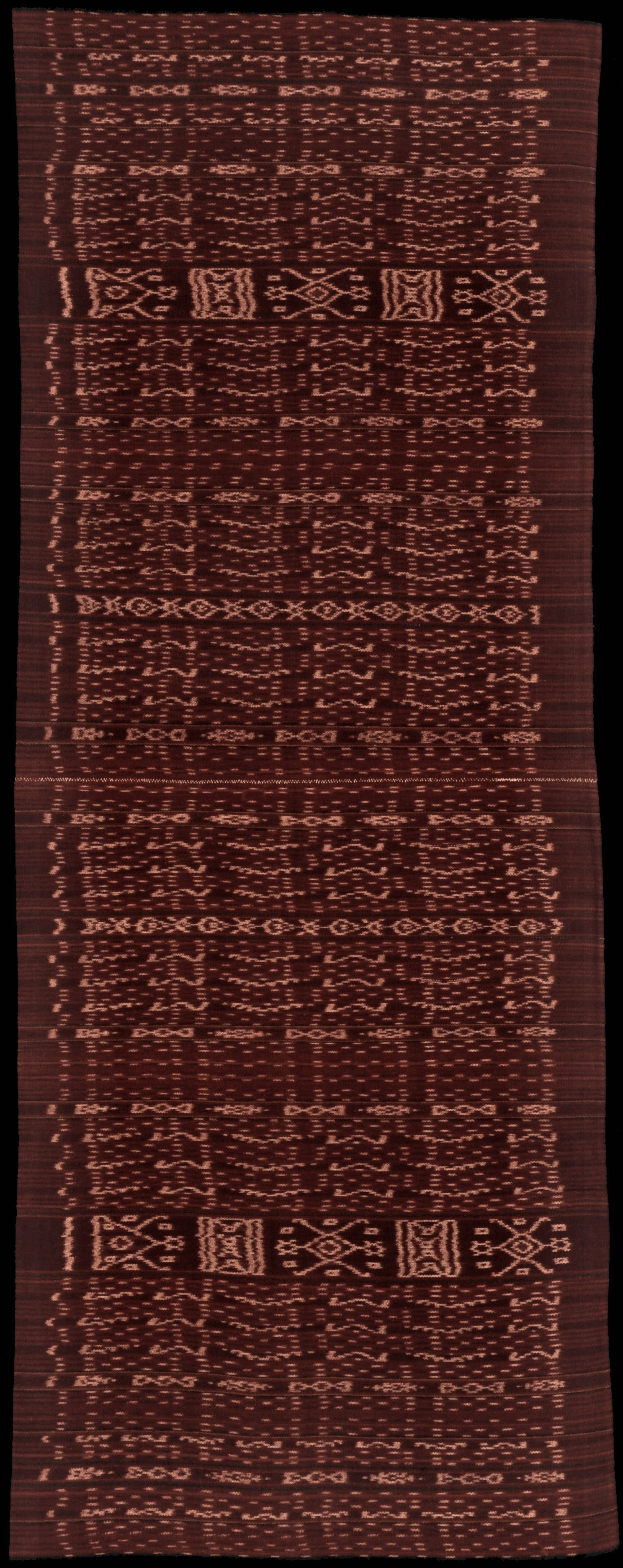| |
 mouse over to magnify mouse over to magnify
| | | | 097 Flores Group, Peninsula
Kewatek (sarong)
| | Locale: | Bama (or Ili Mandiri?) in Bird's Head Peninsula. Lamaholot people. | | Period: | mid 20th c | | Panels: | 2 | | Design: | Kewatek méan made of two panels. Two bands, called kenirek belen, with patola inspired motifs clearly belonging to the Lamaholot vernacular, in a field filled with numerous narrower bands and stripes with fine ikated motifs, executed in morinda red, in three shades, the darkest created by belapit: overdyeing with indigo. | | Size: | 64 x 165 cm (25.1 x 64.9 in) | | Weight: | 885 g (419 g/m2) | | Yarn: | Cotton, hand-spun, medium | | Comment: | Traditional kewatek méan: sarong executed in three shades of morinda, as required for use as bridewealth. A rare piece, with fine weaving and great colour saturation, in excellent condition. The uncommonly rich colour saturation points to a very long dyeing process with either prolonged or repeated steeping in the dye. Production of this cloth may be well have taken five years or more. A mid 20th C piece in as new condition. | | Background: | Additional information in chapters on Flores Group and Peninsula. | | Published: |
Woven Languages, 2014.
Ikat Textiles of the Indonesian Archipelago, 2018.
| | Compare: | 007 128 211 | | Sources: | Nearly identical to kewatek identified as Bama field collected by Ernst Vatter in 1929, depicted in Barnes, Ostindonesien im 20. Jahrhundert, Abb. 137. Also near-identical to kewatek in Maxwell's contribution to Gittinger c.s., Indonesian Textiles, Fig. 7 lower left, identified as Ili Mandiri. Very similar to a kewatek méan worn over her shoulder for display by an Ili Mandiri woman from Wailolong on photograph in Hamilton, Gift of the Cotton Maiden, Fig. 8-5. As of 2014 no other published examples known. Similar to PC 007 except that this piece has been finished into a wearable sarong, presumably after its use in a bridal exchange by a woman in the bridegroom's family. | | |
 ©Peter ten Hoopen, 2025
All rights reserved.
|
|


